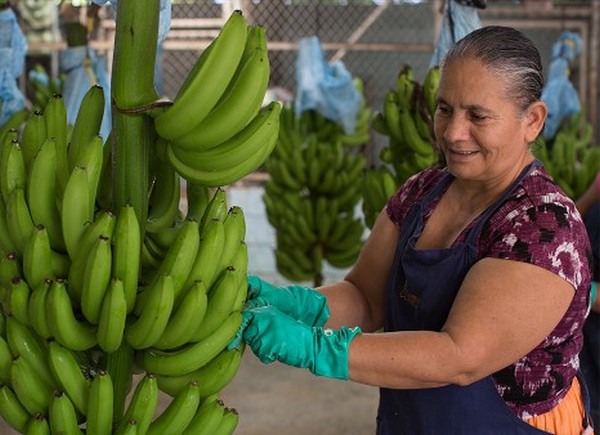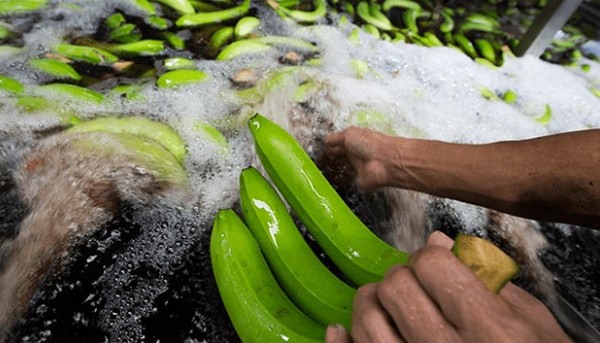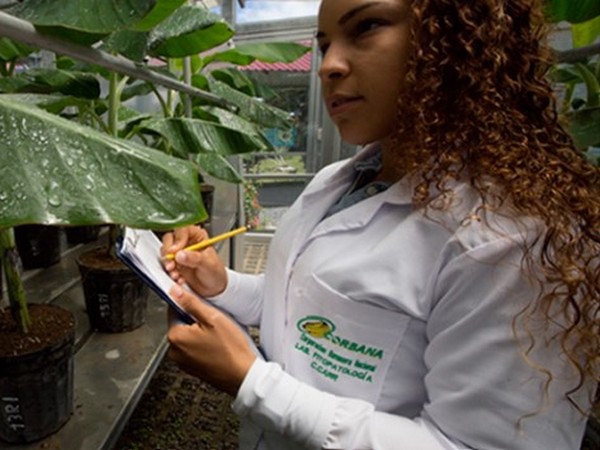The National Banana Corporation of Costa Rica (CORBANA) believes their over 20 years of leadership on growing a sustainable product will help to convince the retail industry in their main markets of Europe, and the US, to support them with better prices.
Jorge Sauma, General manager of Corbana, says they used the recent meetings in Madrid and saw higher banana prices on retail shelves, which they hope will translate into better farm gate prices to support all the developments needed in Latin American production countries.
 © Corbana
© Corbana
Costa Rica is one of the three leading banana exporting countries in the world. In 2021, the country exported some 129 million boxes of bananas (c. 18.14 kilos each), or about 2.3 million tons. The target markets are mainly the United States (34%) and Europe (61%), led by the Netherlands, the United Kingdom, Italy, Spain (6.63%), Belgium, Portugal and Finland. This current 2022 season Corbana forecast a 9% reduction in volumes.
“We have been increasing the volume as well as yield per hectare to more than 3 100 boxes of 18.14 kg. Our highest was 131 million boxes 3 years ago. The situation now is very unpredictable. We have forecast a reduction of 9%. This is due to transportation challenges and increases for ships and fertilisers. In Costa Rica, we also do finance for growers to have money to buy crop protection and allow them more time for repaying. We are always positive. In Madrid we saw the price of banana has increased in retail, there is a lack of bananas in the market, mainly because Ecuador exported less. We are not sure if it will last for the year,” states Sauma.

“I was really impressed with Fruit Attraction this year, it was very well managed. I congratulate the management of IFEMA. We had the opportunity to have a lot of meetings with buyers from several countries. We had the opportunity to explain our banana industry and its differentiation. We have been working for more than 20 years in sustainability. We recycle 100% of the plastics, no waste water goes into rivers and we also reduce the use of agro chemicals by close to 50%.
"There are the social aspects too. Costa Rica has very good laws. Education is free and obligatory for children from 1-6 years while the primary education is paid for by the government. We pay the highest salaries for workers. There is also a lot of focus on the condition of workers. Economic sustainability is another focus area. All this effort goes in so that the consumer has better confidence in our fruit, it should be paid for. It is also done to protect the grower and consumer. It is worth noting that 100% of the farms comply with waste management and recycling protocols while 93% of the packing plants have water recirculation programs and more than half of the farms (63%) are certified as Carbon Neutral by accredited entities with the objective of reaching 100% in the short term.”
“Twenty years ago the supermarkets did not play a strong role in the value chain. Now they are more important than the trade companies. The low position of bananas in the market is a concern. I don’t know why we receive the lowest price as it’s the best fruit. We need to improve this position. It includes higher prices that should be paid for.
"There is the Green pact of the EU, which expects a lot of measures that comes at a higher costs. We are in a very special situation, the price of everything is going up. This includes fertilisers, transportation, carton and plastic prices are higher. Due to Putin’s war it affected all industries. We have done a lot of actions and made suggestions to retailers, it is mainly Aldi who indicated they will not press the prices down. They will put attention in for the social effort, they will change this policy,” explains Sauma.

Corbana, is a private-public entity that acts as the official promoter and regulator as well as hosting a Scientific Research Centre and test farm for the banana industry in Costa Rica. Corbana is organising the International Banana Congress taking place in May 2023. Due to the risk of contamination from other visiting production regions around the world, the congress will instead be held in Miami in the US.
“The global banana industry affects more than 500 million people as a source of food and employment. We are open to go to other markets to try to reach them. The logistics is longer and more expensive while the fruit needs more protection,” concludes Sauma.
 For more information:
For more information:
Jorge Sauma
Corbana
Tel: +506 400 24711
Email: jsauma@corbana.co.cr
www.corbana.co.cr
